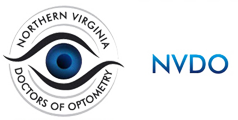Low vision affects millions of Americans every year. The condition is an umbrella term that covers any loss of vision that cannot be treated or corrected by prescription glasses or contact lenses. In severe cases, people who suffer from low vision are considered legally blind. Diagnosing low vision conditions in children is important as early intervention, rehabilitative therapies and low vision devices can reverse, delay or even stop the condition from progressing.

Who Can Diagnose Low Vision in Children?
Low vision can be fully diagnosed by an eye doctor. There are also other professionals who can reliably identify whether your child may have the condition or not. Teachers working with students with vision impairment can perform a functional vision assessment and determine just how much their eyesight is affected. In addition, a mobility specialist may also diagnose low vision through an orientation and mobility assessment.
Low Vision Devices
There are optical devices available to help children suffering from low vision. These devices can perform a variety of functions depending on what the child needs. Monocular devices are often prescribed for patients with difficulties seeing at a distance, while hand-held magnifiers are for near viewing.
Available Treatments
The therapies and treatments mostly depend on the condition of the patient’s eyesight. Our professional low vision specialists from Northern Virginia Doctors of Optometry are trained to help you find a treatment plan that works best for your child.
If your child is having difficulties recognizing faces, seeing at a distance, reading small letters on paper or moving about safely, consult an eye doctor at once. Catching the condition early will help immensely in its treatment.
From prescription glasses to cataracts treatment, you can count on Northern Virginia Doctors of Optometry for all your eye care needs. We will be more than happy to help you with all of your concerns. Call us at (703) 573-1200 to schedule an appointment today.



























